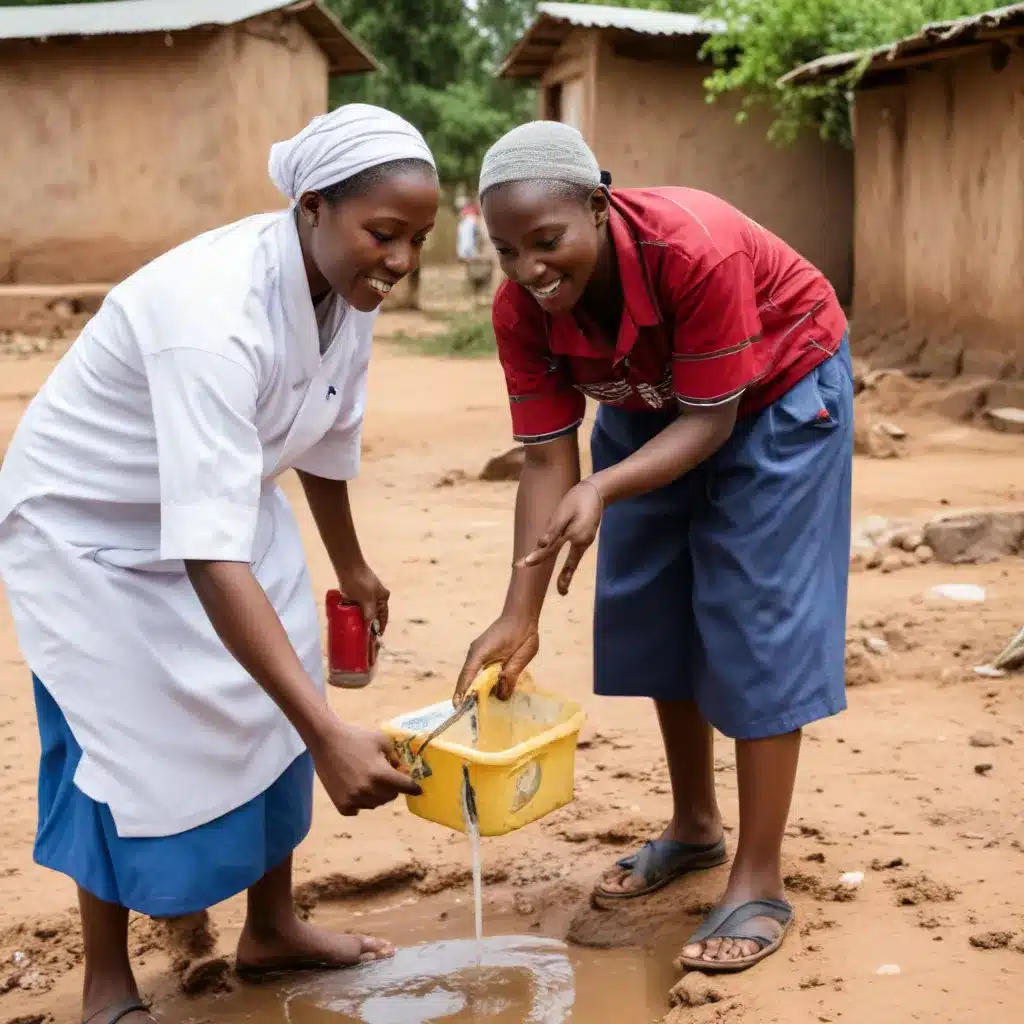
Strengthening Resilience through Collaborative Community Action
In times of crisis, when water, sanitation, and hygiene (WASH) services are most critical, communities must be empowered as active partners in the monitoring and improvement of these essential systems. By embracing a community-based monitoring approach, we can build resilience, ensure equitable access, and enhance the delivery of life-saving WASH interventions, even in the face of complex emergencies.
The COVID-19 pandemic has laid bare the profound disparities that exist in WASH service provision, with marginalized communities bearing the brunt of inadequate infrastructure and limited access. As we confront the far-reaching impacts of this global health crisis, it has become increasingly clear that community engagement and ownership are pivotal to strengthening WASH systems and promoting sustainable solutions.
Amplifying Community Voices for Inclusive WASH Governance
At the heart of effective community-based monitoring lies the meaningful participation of local stakeholders. By elevating the perspectives and experiences of community members, we can gain valuable insights into the unique challenges and priorities within a given context. This collaborative approach empowers communities to become active agents of change, working alongside service providers and decision-makers to identify service gaps, monitor water quality, and advocate for responsive WASH policies.
“Integrating community-based pharmacies into the public health infrastructure could rapidly detect and respond to novel public health threats. Community-based pharmacy practitioners are well-positioned to play a significant role in promoting health equity, responding to global outbreaks, and providing access to patient care among marginalized communities and at-risk populations.”
One powerful example of community-based monitoring in action can be found in the Democratic Republic of the Congo (DRC), where USAID’s Community Development Cooperation Strategy (2020-2025) has prioritized strengthening community engagement and local governance structures to improve WASH service delivery. By establishing community-level WASH committees and equipping them with the skills and resources to monitor infrastructure, water quality, and usage patterns, this initiative has empowered marginalized communities to become active partners in the management of their WASH services.
Bridging the Gap: Integrating Community Expertise into WASH Systems
The integration of community-based monitoring into WASH systems not only amplifies local voices but also enhances the responsiveness and sustainability of service delivery. By combining community-generated data with technical expertise, WASH service providers can make more informed decisions, target interventions where they are needed most, and ensure that the specific needs and priorities of diverse community groups are addressed.
This collaborative approach also fosters a sense of ownership and accountability among community members, who become invested in the long-term success and maintenance of WASH infrastructure. As communities take an active role in monitoring and maintaining their WASH systems, they develop a deeper understanding of these essential services and become empowered to advocate for their rights and hold service providers accountable.
Navigating Crises through Community Resilience
In times of crisis, such as natural disasters, political upheaval, or public health emergencies, community-based monitoring can play a pivotal role in ensuring the continuity and equitable distribution of WASH services. By drawing on the intimate knowledge and resilience of local communities, WASH stakeholders can rapidly identify emerging needs, deploy targeted interventions, and adapt service delivery to meet the unique challenges posed by the crisis.
“Collectively, preventive services provided through a pharmacy (e.g., vaccination) and the patient education provided by a trusted community pharmacist will complement national and global efforts on reducing health disparities, creating a culture of health within marginalized communities.”
For instance, during the COVID-19 pandemic, community-based monitoring enabled WASH service providers to quickly assess the evolving needs of vulnerable households, ensure the continuity of essential services, and implement tailored hygiene promotion campaigns. By bridging the gap between communities and service providers, this approach fostered trust, enhanced coordination, and strengthened the overall resilience of WASH systems in the face of the crisis.
Building a Culture of Inclusive WASH Governance
Ultimately, the integration of community-based monitoring into WASH service delivery represents a crucial step towards achieving universal and equitable access to these essential services. By empowering communities as active partners, we can cultivate a culture of inclusive WASH governance, where the voices, experiences, and expertise of all stakeholders – including the most marginalized – are valued and incorporated into decision-making processes.
As we navigate the complex challenges of the 21st century, from climate change to global health emergencies, the need for resilient, community-driven WASH systems has never been more pressing. By harnessing the power of collaborative community action, we can build a more just, sustainable, and equitable future for all.
Conclusion: Forging a Path Towards Resilient and Inclusive WASH Systems
The COVID-19 pandemic has underscored the critical importance of water, sanitation, and hygiene services in safeguarding public health and supporting community resilience. As we continue to grapple with the far-reaching impacts of this global crisis, it has become increasingly clear that community-based monitoring and engagement are essential to strengthening WASH systems and ensuring equitable access, even in the face of complex emergencies.
By empowering local stakeholders as active partners in the monitoring and management of WASH services, we can foster a culture of inclusive governance, bridge the gap between communities and service providers, and enhance the responsiveness and sustainability of these essential systems. Moreover, this collaborative approach can play a pivotal role in navigating crises, as community-generated data and local expertise can help WASH stakeholders rapidly identify emerging needs, deploy targeted interventions, and adapt service delivery to meet the unique challenges posed by complex emergencies.
As we chart a course towards a more resilient and equitable future, the integration of community-based monitoring into WASH service delivery represents a crucial step forward. By harnessing the power of collaborative community action, we can build a world where access to safe, reliable, and dignified WASH services is a fundamental human right, not a privilege. Let us embrace this call to action and work together to create a future where no one is left behind.

